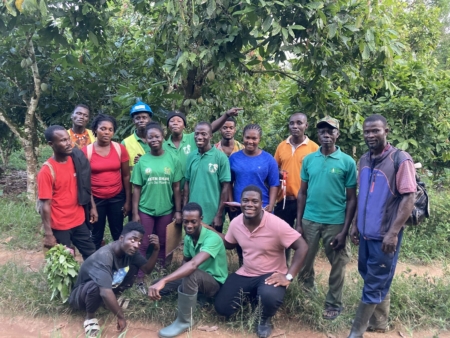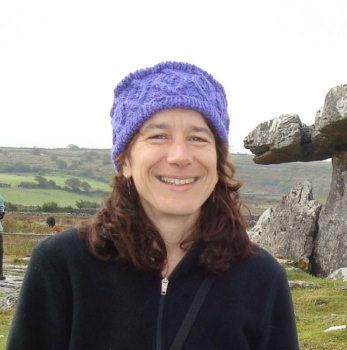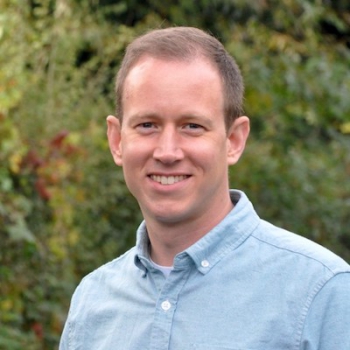Advancing participatory governance processes for nature recoveryCase study
The design and implementation of participatory methods, tools, and approaches for delivering more sustainable and equitable outcomes for people and nature.
This project aims to advance participatory approaches for delivering multiple social and ecological benefits through nature recovery, particularly in ways that are equitable and empower people to shape the decisions that affect themselves, nature and landscapes. Participatory processes are understood as ways to effectively and ethically involve people in the governance and decision-making processes that influence nature recovery, which is essential for achieving equitable and sustainable outcomes for everyone.
This work focuses on understanding ‘what works’ for public and stakeholder participation, including the development of methods, approaches, and practices for engaging local communities and a range of stakeholder groups – including farmers and land managers, businesses, and local authorities – in environmental governance and decision-making processes. Effective and equitable participation is relevant for a range of key actors in nature recovery across the public, private and third sectors including government departments, non-departmental public bodies, non-governmental organisations, charities, local government, consultancies and industry.
This work will include an investigation of the following interrelated topics and questions:
Interested/affected groups and partners in nature recovery, including public and other stakeholder groups.
- How do we understand and identify the communities and other stakeholders who are (or could be) involved in nature’s recovery?
- What are public and stakeholder perceptions, cultural values, and attitudes towards nature recovery, and to what extent are they included/excluded in management and decision-making for nature recovery?
- What different participatory approaches exist for integrating diverse knowledges and values to facilitate the co-creation and management of nature recovery?
- How can communities be empowered to take an active role in delivering nature’s recovery, and what are the associated challenges and opportunities?
Practitioners and practice-enablers involved in the design, delivery, strategy, and monitoring/evaluation of nature recovery.
- What are practitioners’ perspectives of the barriers and enablers for delivering co-benefits through nature recovery, in ways which are equitable and empower people?
- What capacity and capability (e.g., skills, infrastructure, and resources) are needed for delivering and embedding participation in the governance of nature recovery?
- To what extent are practitioners supported (e.g., by institutional, policy, and finance structures) to conduct effective participation and deliver co-benefits?
Institutions and organisations responsible for carrying out nature recovery.
- What role do organisations and institutions play in delivering transformative change to make nature recovery more participative and inclusive?
- To what extent do organisations open up or close down opportunities for participation and community empowerment?
- What recommendations can be made for institutionalising participatory and deliberative democracy for nature recovery?
This work will be initially conducted in the UK case study landscapes, including Oxfordshire and the Scottish Highlands, with other UK and international case studies to follow. This will build on previous work research conducted as part of the Agile Initiative project on Scaling-up Nature-based Solutions (NbS) in the UK, which aims to produce guidance for NbS that maximise the delivery of multiple socio-economic and ecological benefits, in a way that is equitably distributed and financially viable.
Background/rationale
Participatory governance processes are vital for making better quality decisions for more sustainable and equitable outcomes. When they are designed and delivered well, participatory approaches can work to empower marginalised voices, produce better quality evidence and knowledge, and increase the legitimacy and integrity of environmental decisions. Rooted in concepts of deliberative democracy and social justice issues, participation is concerned with the recognition and critique of (in)equity, trust, and power dynamics. Participation can be particularly valuable when there are multiple interested/affected parties, when contested social interests and conflicting evidence are at play, when decisions involve trade-offs, or are otherwise difficult and contentious. Many, if not all, areas of nature recovery involve these characteristics.
As a result of the numerous claimed benefits, public and stakeholder participation has been increasingly sought after and embedded in policy and practice at scale. For example, Principle 10 of the Rio Declaration explicitly states that environmental issues are best handled with the participation of concerned citizens; the Aarhus Convention granted public rights to accessing information, public participation, and access to justice in environmental decision-making processes; and the United Nations Human Rights Council affirmed that a democratic and equitable international order fosters the full realisation of human rights for all, and that everyone is entitled to it.
However, successful participation is not guaranteed in all situations and outcomes are highly variable depending on the context in which it is carried out. Participation can serve to mask and legitimise unequal power relations, marginalise minority perspectives, increase mistrust and disillusionment, among other issues. Central to these debates is the consideration of participant needs and priorities (including people’s values and understandings of ‘nature recovery’), knowledge prioritisation (e.g., the extent to which local and scientific or ‘expert’ knowledge is integrated), and ultimately whose reality ‘counts’ in nature recovery. By understanding what works, this project aims to advance current knowledge and approaches for effective participation in nature recovery, including the socio-economic dynamics and contextual factors (including institutional and political structures) which influence sustainable and equitable outcomes.
Project outputs
- Society
- Society
- Society
Caitlin Hafferty (2024). Harnessing the power of digital tools for community engagement in rewilding. LCNR website.
Social science researchers from the Leverhulme Centre for Nature Recovery are collaborating with Highlands Rewilding to explore innovative digital technologies for enhancing community engagement in rewilding.
To help bring multiple partners together across the landscapes, Highlands Rewilding and the LCNR have co-developed three digital community engagement platforms using software called Commonplace. The Commonplace team provides innovative digital solutions for creating positive change for thriving and resilient places, powered by data and collaboration between diverse groups.
A Recipe for Engagement in Nature-based Solutions and Nature Recovery
Engagement is a cornerstone for Nature Recovery (NR) and Nature-based Solutions (NbS), offering a path to delivering multiple, integrated benefits for people, nature and climate. It applies to a range of initiatives including conservation, restoration, rewilding, urban greening, community gardening, sustainable forestry and agriculture. Engagement can involve approaches like consultation, collaboration, partnership working, and co-design: it is ultimately about how people can work together to deliver for nature. The power of engagement lies in its ability to foster more inclusive decisionmaking, build trust and transparency, and empower communities while improving environmental outcomes and enhancing democratic participation.
A Recipe for Engagement in Nature-based Solutions and Nature Recovery
Engagement is a cornerstone for Nature Recovery (NR) and Nature-based Solutions (NbS), offering a path to delivering multiple, integrated benefits for people, nature and climate. It applies to a range of initiatives including conservation, restoration, rewilding, urban greening, community gardening, sustainable forestry and agriculture. Engagement can involve approaches like consultation, collaboration, partnership working, and co-design: it is ultimately about how people can work together to deliver for nature. The power of engagement lies in its ability to foster more inclusive decisionmaking, build trust and transparency, and empower communities while improving environmental outcomes and enhancing democratic participation.
The first edition of this guidance was funded by the Agile Initiative. The Agile Initiative is supported by the Natural Environment Research Council as part of the Changing the Environment Programme – NERC grant reference number NE/W004976/1
Team
News & events
-

Harnessing the power of digital tools for community engagement in rewilding
8 May 2024Dr Caitlin Hafferty Social science researchers from the Leverhulme Centre for Nature Recovery (LCNR) are collaborating with Highlands Rewilding to explore innovative digital technologies for enhancing community engagement in rewilding. Highlands Rewilding, which aims to both re-wild and re-people the Scottish Highlands through Nature-based Solutions, is working closely with the LCNR to improve its strategy […]
news Blog -

Starting from the bottom: Exploring nature recovery in the cocoa-forest landscape of Ghana
10 October 2023Nestled in Southern Ghana, the Kakum landscape has long captivated the imagination of scientists, conservationists, and nature lovers alike. The exploratory studies are to understand the perceptions, practices and interactions behind this complex landscape of old-growth forests, cocoa agroforests and food crop farms, as well as how to monitor better the contributions and impacts of […]
news Blog








